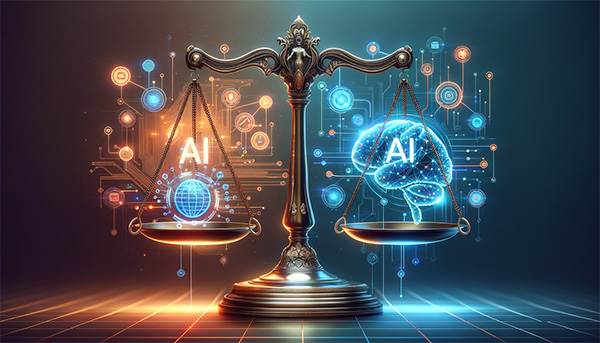
Artificial Intelligence (AI) is moving rapidly into Sri Lanka’s daily life — from social media algorithms shaping public opinion to AI-powered analytics in banking, and soon, into government services like digital IDs and welfare distribution. While these tools can bring efficiency and new opportunities, they also pose serious risks to rights, democracy, and social equity.
This is why the issue of AI accountability is urgent. Around the world, governments and civil society are debating how to make sure humans remain responsible for what AI does. In Sri Lanka, too, this conversation can no longer be delayed.
What is AI Accountability?
AI accountability means ensuring that people — not machines — are answerable for the outcomes of AI. When an algorithm is used to:
- Screen job applicants,
- Approve or deny credit scores,
- Distribute welfare benefits, or
- Identify individuals through surveillance,
…there must be transparency, oversight, and remedies if the system makes mistakes or causes harm. Otherwise, AI becomes a “black box of power” where decisions affecting people’s lives cannot be questioned.
Why This Matters for Sri Lanka
Sri Lanka has declared its ambition to become a regional hub for AI under the Government’s National AI Strategy (ICTA). AI is being considered in areas such as healthcare, agriculture, education, disaster management, and public services.
But independent research has already pointed to major governance gaps. For instance, LIRNEasia highlights that Sri Lanka lacks strong policies on data protection, algorithmic transparency, and ethics in AI adoption (LIRNEasia). This means imported technologies could be deployed without proper safeguards, exposing citizens to harm.
Some key risks are already visible:
- Bias in decision-making: Globally, AI-driven welfare systems have wrongly excluded deserving families, such as in the Netherlands where thousands were falsely accused of fraud due to biased algorithms (AlgorithmWatch). If Sri Lanka adopts similar systems without safeguards, vulnerable communities could suffer.
- Threats to privacy and surveillance: The proposed digital ID system has raised serious debate. Without strong accountability, such tools can be linked to mass surveillance or profiling, undermining citizen trust. Similar issues have been observed in India’s Aadhaar program, where weak safeguards led to exclusion and privacy violations (World Bank ID4D).
- Education inequality: UNESCO has warned that AI-based e-learning systems can unintentionally reinforce social divides, particularly where rural students lack access to digital infrastructure or where AI misclassifies learners (UNESCO Report). In Sri Lanka, with stark urban–rural disparities in connectivity, this risk is highly relevant.
- Power imbalance: Without transparency, corporations and governments could use AI in ways ordinary people cannot challenge. This weakens democratic oversight and creates a gap between technology owners and technology users.
R2L and Journalists for Rights: Advocating for Accountability
The Right to Life Human Rights Centre (R2L), together with its media arm Journalists for Rights, has already taken up this challenge. For us, AI accountability is not merely a technical matter — it is about protecting fundamental rights and democracy.
By drawing on global case studies, such as those documented by the Pulitzer Center’s AI Accountability Network (Pulitzer Center), we highlight how unchecked AI can harm societies. These insights help frame Sri Lanka’s risks in the global context while showing that solutions must be tailored locally.
That is why R2L and Journalists for Rights are seriously engaging in advocacy for Sri Lanka to adopt a national framework on AI accountability. Such a framework should ensure transparency, fairness, data protection, and redress mechanisms — guaranteeing that technology supports human dignity and justice.
The Way Forward
Sri Lanka cannot afford to repeat the mistakes seen elsewhere, where poorly regulated AI deepened inequality and eroded trust in institutions. AI accountability is not optional — it is essential.
By speaking out now, R2L and Journalists for Rights underline that AI must serve the people, not control them. What is needed is a national conversation leading to a framework that balances innovation with protection of rights.
AI’s promise for Sri Lanka is real — but without accountability, the risks are greater than the rewards.
References:
- ICTA
- LIRNEasia
- AlgorithmWatch
- World Bank – ID4D Initiative
- Pulitzer Center – AI Accountability Network
Right to Life Media Advocacy Network
